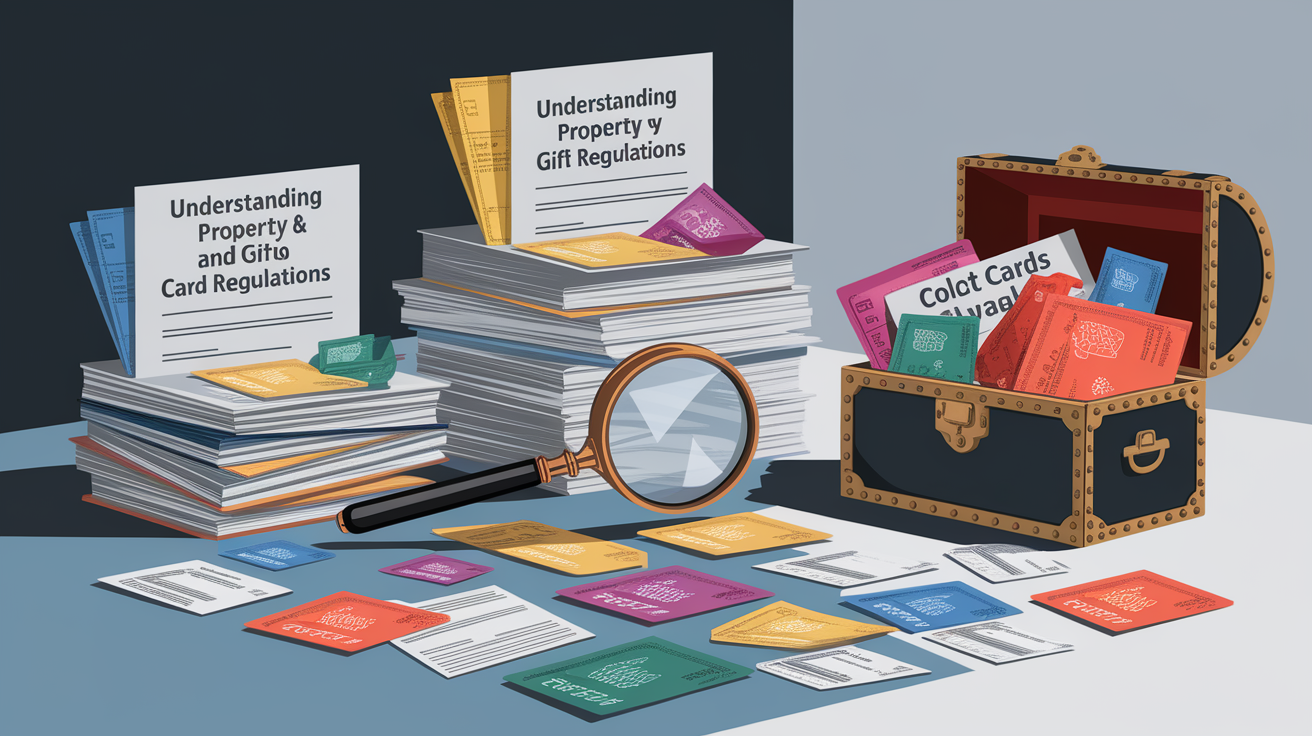Understanding Unclaimed Property and Gift Card Regulations
Unclaimed property laws can feel like a maze with ever-shifting walls. You stand at the entrance, perhaps holding unused gift card balances or dormant accounts, unsure which turn will lead to compliance. At their core, these laws require businesses to report and remit abandoned intangible or tangible property to the state after a set dormancy period—usually one to five years.

For gift cards, the rules are even more nuanced. Depending on the state, partially or fully unredeemed cards may be treated as unclaimed property if they meet specific criteria, such as no expiration date or usage after a set period of inactivity. The intent behind these laws is consumer protection, ensuring unclaimed funds are safeguarded until reunited with their rightful owners. You can explore a detailed overview of these concepts in this guide to unclaimed property laws.
State treasurers—or designated custodians—take responsibility for managing escheated property once it is reported. But the rules for reporting, remitting, and defining gift card status vary dramatically, influenced by factors like inactivity fees, transferability, and whether redemption is possible at partnered retailers. Understanding these distinctions is essential to avoid penalties.
Identifying and Tracking Unclaimed Assets
Finding unclaimed assets is a bit like sifting through an attic—you’ll uncover items you forgot existed. But under the law, each forgotten “item” has a clock ticking on when it must be reported.
Unclaimed assets can include:
- Dormant bank accounts
- Uncashed checks
- Unredeemed gift cards or stored value cards
- Unclaimed insurance proceeds
Gift card tracking requires precise recordkeeping. Without the purchaser’s last known address, property escheatment often defaults to the issuer’s state of incorporation. This priority rule—originating from the landmark Texas v. New Jersey decision—creates complications for businesses, as outlined in state-specific gift card escheatment guidance.

To keep track of your obligations, deploy systems that monitor:
- Issuance dates of gift cards
- Redemption activity or inactivity
- Relevant state dormancy periods
- Applicable exemptions and fee restrictions
Compliance Steps for Businesses
Compliance isn’t just about avoiding trouble—it’s about being a responsible steward of customer value. Think of it as building a bridge over a river: strong supports (policies) and constant checks (audits) ensure safe passage.

The steps to comply with unclaimed property laws and gift card regulations generally include:
- Identify reportable balances — Review dormant accounts and unused gift cards against state criteria.
- Perform due diligence — Attempt to contact the owner before escheating funds to the state.
- Report and remit property — File reports with relevant state agencies, observing deadlines.
- Maintain records — Keep documentation of issuance, redemption, and due diligence efforts.
States may offer Voluntary Disclosure Agreements (VDAs) that allow businesses to come into compliance retroactively with reduced penalties. Guidance on risk management and process development, such as in keys to understanding gift card escheatment, can help businesses avoid audit triggers and fines.
Recovering and Redeeming Unclaimed Property and Gift Cards
What happens after property is escheated? It doesn’t vanish—it waits in the safety of the state treasury until claimed. Imagine it as a locked box in a secure vault, accessible if the right owner arrives with proper identification.
Individuals can recover unclaimed funds by searching their state’s unclaimed property database and filing a claim. The process often looks like this:
- Search for your name or business in the state’s unclaimed property database.
- Submit required documentation to prove ownership.
- Receive funds or, if applicable, replacement gift card.
Businesses holding liability for unused gift cards can encourage redemption through reminders and promotions before dormancy periods expire. This not only avoids escheatment but also fosters customer goodwill.
Benefits of Proactive Unclaimed Property Management
Being proactive is like tidying your house regularly—it prevents the chaos that comes from neglect. For businesses, proactive management of unclaimed property and gift card obligations yields tangible benefits.
- Reduced compliance risk — Anticipate and adapt to legislative changes before deadlines loom.
- Improved customer relations — Remind customers to use their gift cards, reinforcing loyalty.
- Accurate financial reporting — Manage gift card liability in line with accounting best practices and state requirements.
- Cost avoidance — Avoid penalties, audits, and additional compliance costs.
Statistics show that a significant portion of gift card balances—sometimes as much as 10%—go unredeemed annually. By having a tested compliance system in place, businesses can manage this “breakage revenue” ethically while meeting state obligations.







